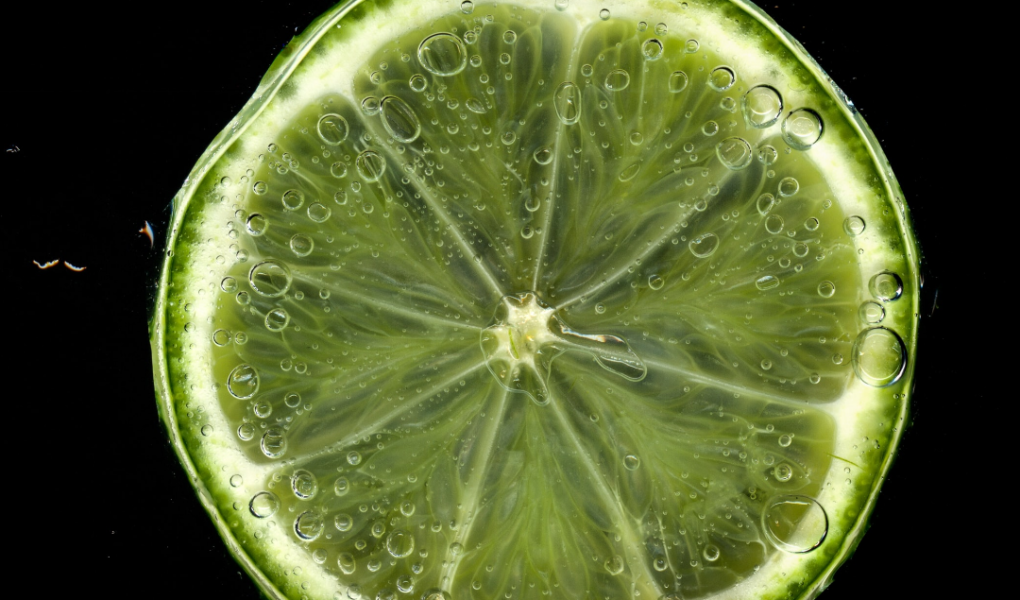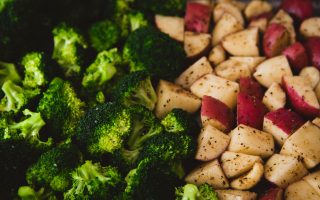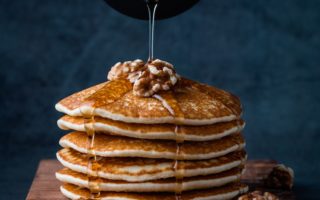Did you know that the body treats the stress factors as threats?
So, every time you encounter a stressor or threat, the brain reacts by setting off an alarm in the body. This triggers the adrenal glands and they release stress hormones like adrenaline and cortisol.
Adrenaline raises heart rate and blood pressure. Cortisol prepares your body for a fight-or-flight reaction. These hormones continue to act until the perceived threat has passed. So, your body is in attack mode until this time.
When you face stress every day, it disrupts your body’s normal processes. This increases your risk of developing health issues like anxiety, digestive problems, sleep-related issues, and weight gain/loss.
So, it is important to find healthy ways to manage stress and cope with stressors.
Some of the best strategies are:
- Following a healthy diet
- Regular exercise and healthy sleep habits
- Relaxation techniques like yoga and meditation
- Finding a hobby
- Seeking professional counseling when necessary
Of these different strategies, one of the easiest solutions is to have a healthy diet. Find relief from daily stressors by including the following stress-fighting foods in your diet.
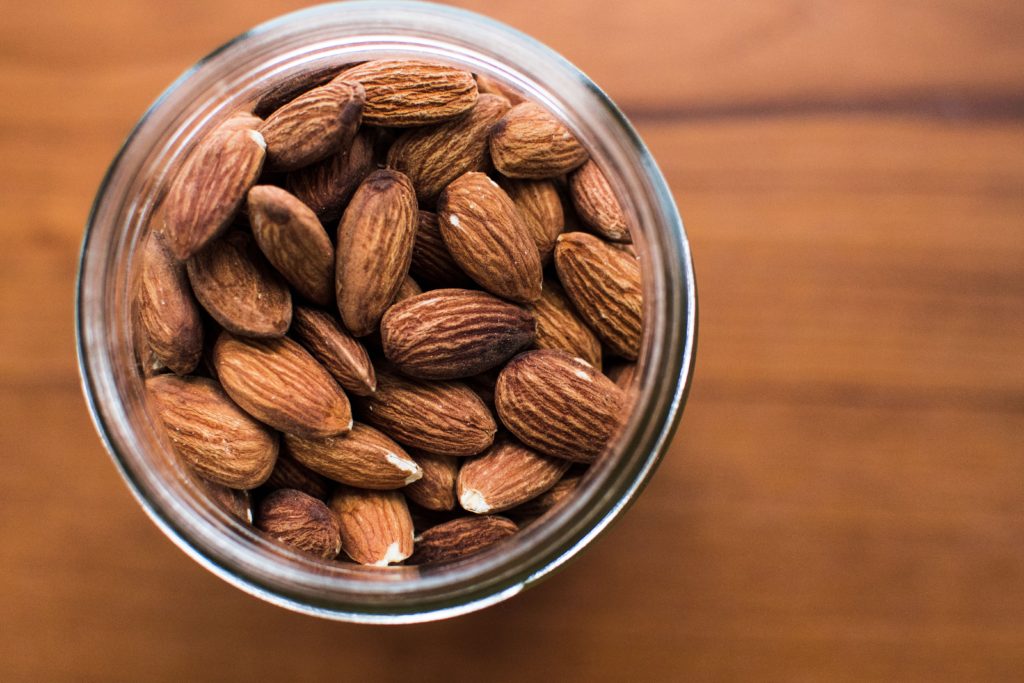
Nuts
Did you know that adequate amounts of magnesium in the body can decrease headaches, fatigue, muscle spasms, premenstrual mood changes, and constipation, all of which are related to stress?
Studies on adults over 51yrs of age suggest that low magnesium levels are linked to poor sleep quality and chronic inflammatory stress conditions.
Now, the good news is that nuts are a good source of magnesium. One ounce (28-gram) serving of cashews contains 82 mg of magnesium or 20% of the RDI.
So, include nuts like almonds and cashews in your diet to obtain the recommended quantity of magnesium. This will help you combat stress and improve your quality of sleep and overall health.
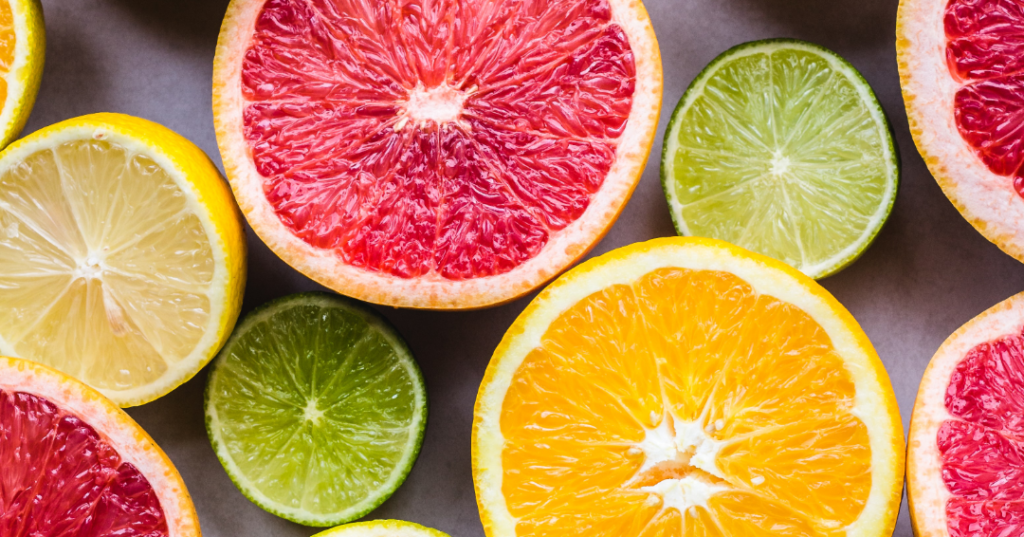
Citrus Fruits
You may already know that citrus fruits are excellent sources of Vitamin C. Hence, they are very helpful to combat common cold and cancer conditions.
In addition to these benefits, a study also links Vitamin C to reduced physical and psychological stress. When your body has high levels of Vitamin C, you will be better equipped for acute psychological challenges and be able to bounce back from stressful situations.
You can improve your Vitamin C levels by taking supplements. However, it is always better to obtain this nutrient naturally. Citrus fruits are the best natural sources of Vitamin C. Here are some creative ways to include them in your diet throughout the year.
- Freeze lemon zest
Use a vegetable grater to remove the aromatic zest from fresh lemons. Place it in a freezer bag and store it for up to a year. You can add it to salads, ice creams, smoothies, frosting, and puddings.
- Frozen lemon cubes
One of the easiest and most effective ways to preserve lemons is to freeze their juice in ice cube trays and store. You can use these cubes in your cooking for several months. Citrus fruits not only improve nutritional value but also enhance the flavors of dishes. You can add blood oranges in chia pudding, make green salads with citrus fruits and use citrus juice in salad dressings and vinaigrettes. You can also include it in cocktails, drizzle lemon juice over pasta or make beet blood orange salads to enjoy the benefits of these nutritional powerhouses.
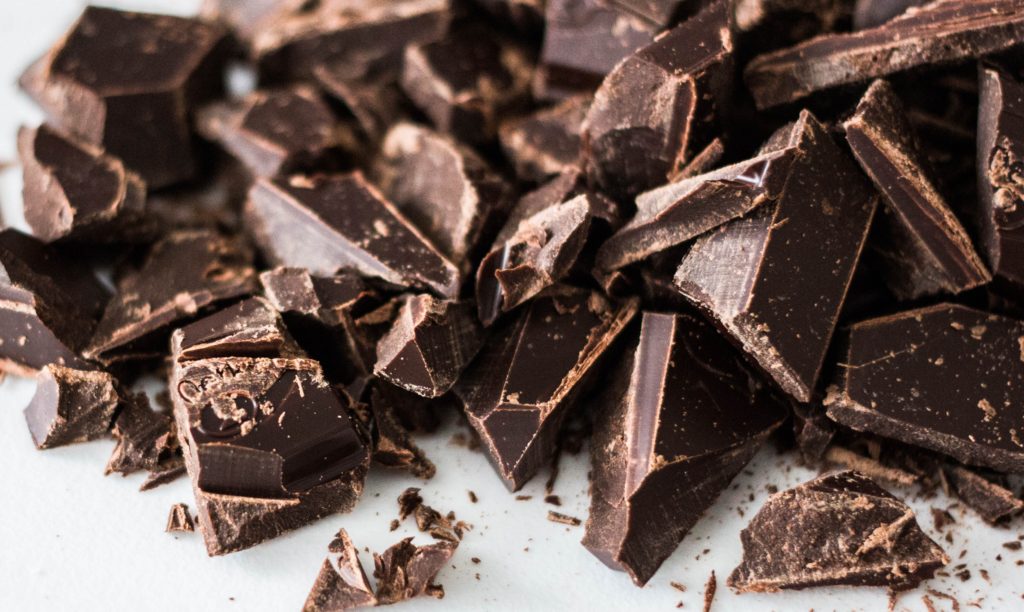
Dark Chocolate
Here is a good excuse to indulge your sweet tooth.
Dark chocolate is rich in antioxidant nutrients. It contains high levels of cocoa, which contains more phenolic antioxidants than most other foods. As a result, it can neutralize free radicals and reduce metabolic stress.
Free radicals are harmful molecules in the body that damage cells and cause disease. Antioxidants protect your body against free radicals and act by neutralizing them.
Cocoa can also improve cognitive functioning and overall mood.
Studies using cocoa delivered promising results in people suffering from anxiety. By consuming 40 g of chocolate every day for 2 weeks, their metabolism improved, while stress hormone levels were seen to reduce significantly.

Probiotics
You may already know that probiotics are good for your gut. They are live bacteria and yeasts present in some foods and drinks.
Scientific studies suggest that there is a direct correlation between gut health and conditions like anxiety, depression and mood swings. This is because good gut bacteria produce mood-enhancers like serotonin and gamma-aminobutyric acid that naturally improves your mental disposition.
Here are some of the best sources of healthy probiotics.
Kefir
This is a fermented, cultured beverage that resembles yogurt in taste and color. It is tart and creamy. Kefir is prepared from yeast, proteins, and bacteria. Although it is traditionally made with milk, vegan versions from the fermented coconut milk are also available.
Miso
Miso is a traditional Japanese paste made from fermented soybeans, rice, and salt. It is prepared by mixing cooked soybeans with a starter culture called koji. After adding enough salt and water, the mix is fermented for several months.
Different varieties of miso can be prepared by varying the ingredients and fermentation time. Use it to add delicious umami flavors to salad dressings, soups, and marinades. You can also add it to stir-fries and dips.
Kimchi
Kimchi is a Korean pickle containing vegetables like cabbage and scallions that are salted, seasoned and fermented. The fermenting agent used in Kimchi is Lactobacillus. It aids digestion and keeps a healthy balance of good bacteria in the gut. Kimchi is traditionally made using Chinese cabbage and it contains chili paste and garlic.
Good kimchi has a tangy, well-rounded flavor and good crunch. Eat it with rice or noodles or add it to pasta and salad dressing.
Sauerkraut
Like kimchi, Sauerkraut is a fermented and highly nutritious vegetable food. It contains white cabbage and is seasoned with caraway seeds. The bacteria in the leaves ferment the natural sugars in the vegetable and convert it into lactic acid. This yields Sauerkraut. The flavors are milder than kimchi. However, it is also an effective probiotic.
Kombucha
Kombucha is an ancient Chinese beverage with a green tea or black tea base. The base is mixed with white sugar and a tea fungus and is left to ferment for one to two weeks. New organic compounds are produced during the fermentation process. They give the product a mild, vinegary taste. Kombucha also contains healthy bacteria that improve gut health.
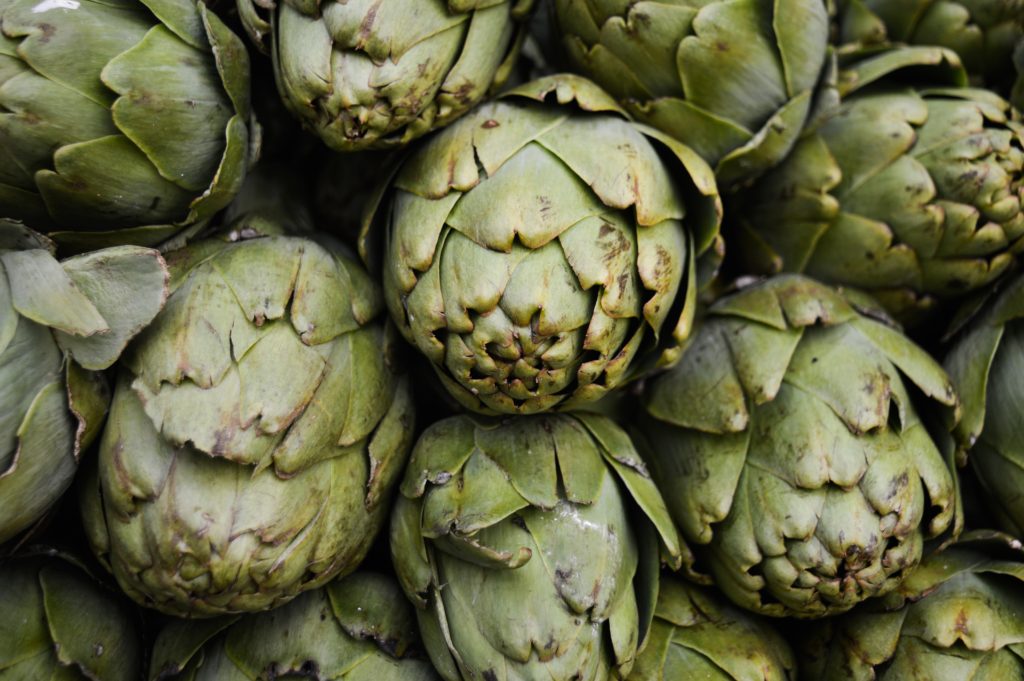
Fiber-rich foods
According to the American Heart Association, the daily value for fiber is 25 grams per day on a 2,000-calorie diet for adults. This number may also depend on age or sex:
- women under 50: 21 to 25 grams per day
- men under 50: 30 to 38 grams per day
The benefits of a fiber-rich diet are not just limited to good digestive health. Scientific studies prove that high-fiber foods can also reduce anxiety, depression, and stress. Here are some of the best fiber-rich foods to add to your diet.
Avocados:
The avocado is a rich, creamy fruit that is rich in both soluble and insoluble fiber. You can either eat it raw or use the fleshy part in guacamole, salads or on toast.
Fiber Content: 10 grams in a cup, or 6.7 grams per 100 Grams
Artichokes:
Artichokes are delicious and nutritious low-fat fruits with high fiber content. They contain inulin which acts as a prebiotic. Artichokes can be boiled, steamed or microwaved.
Fiber Content: 10.3 grams in one artichoke, or 8.6 grams per 100 grams
Lentils:
Lentils are an excellent source of plant-based fiber protein and fiber. There are different types of lentils like red, yellow, brown and green types. You can experiment with each of these varieties to create a variety of dishes and enjoy their health benefits.
Fiber Content: 15.6 grams per cup of cooked lentils, or 7.9 per 100 grams
Split peas:
These are the dried, split, and peeled seeds of the pea plant. Apart from being rich sources of vitamins, nutrients, and abundant protein, split peas also contain fiber.
Fiber Content: 16.3 grams per cup of cooked split peas, or 8.3 per 100 grams
Chia Seeds:
Chia seeds are tiny, edible seeds that are rich in omega-3 fatty acids. They have a host of health benefits like controlling blood sugar levels, keeping you hydrated and reducing food cravings. You can add them to puddings, juices, and smoothies.
Fiber content: 10.6 grams per ounce of dried chia seeds, or 34.4 grams per 100 grams
Beans, flax seeds, broccoli, and whole grains are other good sources of fiber. Include one or more of these items in your daily diet to meet your fiber needs. The added fiber content will not only improve your digestive health but also prepare your body to fight stress.
As human beings, we cannot completely avoid stress. However, we can fight it using stress management strategies. A healthy diet, regular exercise, and proper sleep habits can help you reduce your stress levels.
This list of foods will go a great way in helping you combat stress. Whether it is by boosting calming hormones like serotonin, reducing free radicals in the body or relieving stress-induced symptoms like insomnia, there are several benefits. So, add these anti-stress foods to your diet and get ready to fight all your daily stressors.

The content of this article should not be considered a substitute for professional medical expertise or treatment. This website is not intended to be a substitute for the advice of a physician, certified dietitian or other licensed professional. Always consult with your primary care provider before starting a new diet or introducing new foods!

